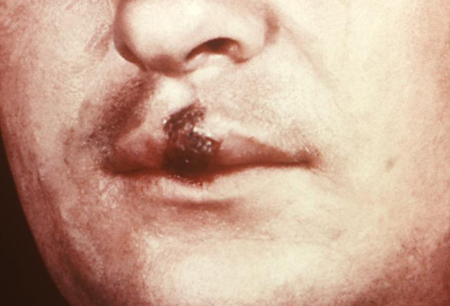Resumo
Differentials
Common
- Schizophrenia
- Schizoaffective disorder
- Brief psychotic disorder
- Schizophreniform disorder
- Depression with psychotic features
- Bipolar disorder
- Delusional disorder
- Alcohol
- Withdrawal syndrome
- Cocaine
- Cannabis
- Amphetamines
- Phencyclidine
- Inhalants (solvents, aerosols, gases, nitrites)
- Dextromethorphan
- Dementia
- Chronic thiamine deficiency (Korsakoff psychosis)
- Acute hepatic porphyria
Uncommon
- Delusional symptoms in partner of individual with delusional disorder (folie a deux)
- Organophosphate toxicity
- Anticholinergics
- Dopamine agonists
- Other prescription or over-the-counter medications
- Heavy metal toxicity
- Traumatic brain injury
- Brain tumor
- Epilepsy
- Multiple sclerosis
- Encephalitis (infective or autoimmune)
- HIV
- Neurosyphilis
- Delirium with psychosis
- Vitamin B12 deficiency
- Folate deficiency
- Niacin deficiency
- Cushing syndrome
- Thyroid dysfunction
- Thymoma
- Hyperparathyroidism
- Lupus cerebritis
- Wilson disease
- Lysosome storage disease
- Homocystinuria
- Metachromatic leukodystrophy
- Klinefelter syndrome
- DiGeorge syndrome
- Prader-Willi syndrome
Contributors
Authors
Adrian Preda, MD
Professor of Clinical Psychiatry
Department of Psychiatry and Human Behavior
University of California, Irvine School of Medicine
Irvine
CA
Disclosures
AP declares that he has no competing interests.
Graham Blackman, MBChB, MRCPsych
Department of Psychosis Studies
Institute of Psychiatry, Psychology and Neuroscience
King’s College London
London
UK
Disclosures
GB declares that he has no competing interests. He is an author of publications cited in this topic.
Acknowledgements
Dr Adrian Preda and Dr Graham Blackman would like to gratefully acknowledge Dr Karen A. Graham and Dr Diana O. Perkins, previous contributors to this topic.
Disclosures
KAG declares that she has no competing interests. DOP has served as a consultant on antipsychotic medications for Genentech, Janssen, Lundbeck, Otsuka, and Sunovion. The University of North Carolina at Chapel Hill received compensation for research and consulting work by DOP from Genentech, the NIH, Research Triangle Institute, and the State of North Carolina; the university has also been awarded a patent for isolation of pluripotent stem cells from human tissues, with Diana Perkins listed as one of the inventors. DOP has received royalties for the textbook Schizophrenia, published by the American Psychiatric Association Press.
Peer reviewers
Philip McGuire, MBChB, MD, PhD, FRCPsych
Department of Psychosis Studies
Institute of Psychiatry, Psychology and Neuroscience
King’s College London
London
UK
Disclosures
PM has been reimbursed by manufacturers of antipsychotic drugs for consultancy and speaking at conferences. PM has received grant funding for research and to support scientific conferences.
Vinod H. Srihari, MD
Assistant Professor of Psychiatry
Yale University School of Medicine
Connecticut Mental Health Center
New Haven
CT
Disclosures
VHS declares that he has no competing interests.
Peer reviewer acknowledgements
BMJ Best Practice topics are updated on a rolling basis in line with developments in evidence and guidance. The peer reviewers listed here have reviewed the content at least once during the history of the topic.
Disclosures
Peer reviewer affiliations and disclosures pertain to the time of the review.
References
Key articles
American Psychiatric Association. Diagnostic and statistical manual of mental disorders, fifth edition, text revision (DSM-5-TR). Washington, DC: American Psychiatric Association; 2022.
National Institute for Health and Care Excellence. Psychosis and schizophrenia in adults: prevention and management. Mar 2014 [internet publication].Full text
Reference articles
A full list of sources referenced in this topic is available to users with access to all of BMJ Best Practice.

Patient information
Alzheimer's disease and other kinds of dementia
Bipolar disorder: how can I avoid a relapse?
More Patient informationLog in or subscribe to access all of BMJ Best Practice
Use of this content is subject to our disclaimer